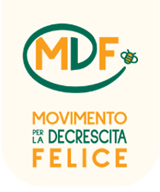Since the purpose of doing became “doing more and more”, beauty has been deliberately destroyed. This is true both of the original beauty of the world and of the beauty added by human well-doing along the centuries. With the new orientation towards doing more and more, the world has become a mere repository of resources and rubbish dump. For the sake of getting bigger and bigger amounts of resources, the beauty of natural or anthropic landscapes has been unregretfully destroyed. For transforming those resources into bigger and bigger amounts of commodities, the earth’s surface has been covered with hideous crusts of buildings and asphalt, rivers have been turned into sewers and filled with poisons, the air has been polluted with smokes horrible to the eyes and devastating to the lungs, century-old forests have been cut down.
If beauty – both the original beauty of the world and the beauty added by human well-doing when it was aimed at contemplation rather than at “doing more and more” – had kept its importance in the collective imagination and value system, would it still have been persecuted? What if art had continued to defend beauty, also from natural deterioration of its integrity? What if art had kept its purpose – utopian but inborn in all human beings – to overcome the limits of space and time and create continuity among generations, exactly by defending beauty? However, how can art preserve beauty if the technical abilities needed to represent it are despised as a hindrance to creativity?
By defending and exalting the value of beauty in the collective imagination, art can make a big contribution to defining a new cultural paradigm that can reverse the trend in which we have been caught since economy was enslaved to the growth of production of commodities. This is a thrilling but difficult mission, as it implies rebuilding from the ruins left by one century of destruction, cultural annihilation of practical know-how, simplification, trivialization, ideologies passed off as ideas, unscrupulous marketing passed off as art criticism and art history, empty talk about nothing, arrogant management of power.
Know-how is not only an instrument to make our projects concrete, but also the measure of what can be thought and planned.
For more information please visit the website Art and Degrowth
Moreover, here you can find Maurizio Pallante’s thoughts in this regard.

